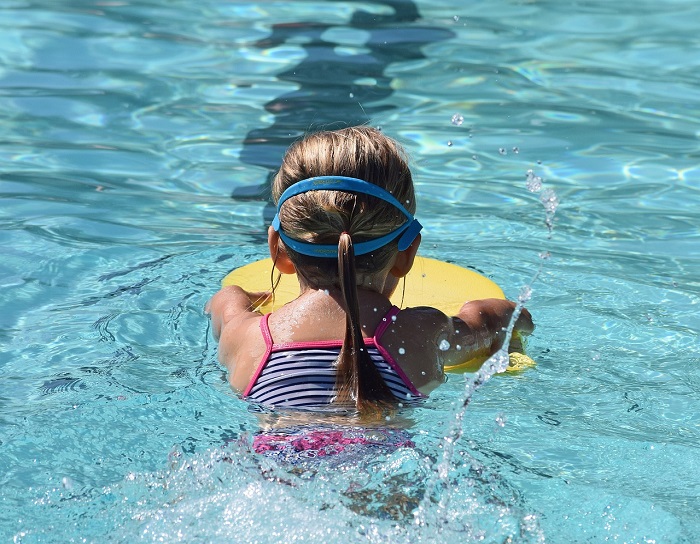The BEST way to Avoid Ear-Infections (Swimmer’s Ear)
Swimming is one of the most enjoyable and refreshing activities you can indulge in while traveling abroad. Whether you’re taking a dip in the crystal-clear waters of a tropical paradise or exploring historic city canals, water offers a respite from the heat and a chance to unwind. However, the fun can quickly turn into discomfort if you develop a swimmer’s ear infection. Here, we’ll explore how to avoid ear infections while abroad. By the way, At the end of this article, I have included a successfully tested method that will help you to avoid ear infections while abroad – it has never failed!
Understanding Swimmer’s Ear
Swimmer’s ear, also known as otitis externa, is an infection that affects the outer ear canal. This condition often arises when water becomes trapped in the ear canal, creating a moist and conducive environment for bacteria or fungi to thrive. Swimmer’s ear can cause symptoms such as itching, pain, redness, and a sensation of fullness in the ear. If left untreated, it can lead to more severe complications. The chances are, if you suffer from a build up of wax in one or both ears, you will be susceptible to swimmer’s ear.
Prevention is Key
Preventing swimmer’s ear is essential to ensure your aquatic adventures remain enjoyable. Here are some strategies to consider:
**1. Keep Ears Dry:** The fundamental rule to avoid swimmer’s ear is to keep your ears as dry as possible. After swimming, use a clean, dry towel to gently pat your ears, removing any excess moisture. Tilting your head and pulling your earlobe in different directions can also help water drain from your ear canal.
**2. Use Earplugs:** Consider using earplugs designed for swimming or waterproof earbands to create a barrier between your ear canal and water. These are especially useful in situations where water exposure is inevitable.
**3. Avoid Cotton Swabs:** It might be tempting to use cotton swabs to dry your ears, but this can actually push water and earwax further into the ear canal. Opt for a soft, clean cloth or towel instead.
**4. Ear Drops:** Over-the-counter ear drops formulated to dry the ear canal can be an effective preventive measure. These drops help evaporate any trapped water and reduce the risk of infection.
**5. Avoid Invasive Cleaning:** Cleaning your ears with sharp objects or inserting foreign items like bobby pins can damage the delicate skin of the ear canal and increase the risk of infection. Your ears are generally self-cleaning, so let them do their job.
**6. Stay Informed:** Be aware of the water quality in the areas you’re swimming. Choose to swim in clean, well-maintained pools or beaches to reduce the risk of contamination.
**7. Dry Hair:** If you have long hair, make sure to thoroughly dry it after swimming. Water trapped in your hair can easily drip into your ears, leading to infection.
**8. Shower After Swimming:** Rinse your body, including your ears, with fresh water after swimming in pools or the ocean. This can help remove any residual chlorine, salt, or contaminants that may contribute to swimmer’s ear.
**9. Don’t Overdo It:** Excessive or prolonged swimming can increase the chances of water getting trapped in your ears. Take breaks and allow your ears to dry completely.
**10. Be Cautious with Foreign Objects:** If you need to insert something into your ears, such as earplugs or headphones, do so gently and carefully to avoid injuring the ear canal.
Seeking Medical Help
Despite taking preventive measures, you might still develop a swimmer’s ear infection while abroad. If you experience symptoms such as pain, itching, or drainage from the ear, seek medical attention promptly. A healthcare professional can provide the appropriate treatment, often involving antibiotic or antifungal ear drops, to clear the infection. Obviously you should make sure that you have adequate holiday insurance as many countries do not have free medical treatment. Be aware that you may have to pay for some treatment up-front and claim it back from your insurance company on your return.
Home-Made Remedy
I promised you at the start of this article that I would share a tried and tested home-made remedy with you – well here it is. As mentioned earlier, buy a small container of olive oil ear-drops (they’re very cheap) and add two or three drops of tea-tree oil to the ear-drops. Shake them well and make sure to pack them in your suitcase. Now, every day (after swimming for the last time) place two or three drops of your solution into each ear. Allow the drops some time to permeate the inner ear and lay on your side while this happens. I have used this method successfully since 1995 and it works a treat!
In conclusion, enjoying aquatic activities while traveling abroad doesn’t have to lead to the discomfort of a swimmer’s ear infection. By following these preventative tips and being vigilant about ear care, you can make the most of your swimming adventures without any worries. Remember that the key to a trouble-free trip is to stay dry and informed, use earplugs when necessary, and promptly seek medical attention if you suspect an infection. Travel safely, and may your swim be infection-free!


1 Comment
Your comment is awaiting moderation.
Was looking for something specific at httphiww88vip and found exactly what I needed. The VIP access gives you a more extensive gameplay. httphiww88vip seems pretty legit.
Hi David. I can vouch for your homemade eardrops because I have been getting an ear infection on every holiday that I’ve been on. I did what you said and applied the drops after my final swim of the day and my recent holiday to Greece was the first holiday that I didn’t come home with an ear infection. You’re a life-saver mate.